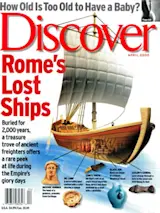We are hiking in silence, at a fast clip, up a nearly vertical ridge in Madagascar's Ampijoroa National Park. It's seven o'clock on a winter morning, but the temperature is already settling into the high 90s--a wall of heat through which we struggle to carry our gear and gain some traction from the sandy soil. Overhead, stands of baobab and rosewood trees rise more than 60 feet into the sky, opening out into an airy, inviting canopy. Down here, the forest is a tangle of lianas, shrubs, and saplings. We are scratched and bruised and desperate for a sign--any sign--of our quarry.
For a week now we have hiked more than 20 miles a day, frequently off trail, in search of the island’s most elusive animal: a carnivore little known to science and unknown to most of the world. The Malagasy people call it a fossa (pronounced foo-sa) and tell ...














